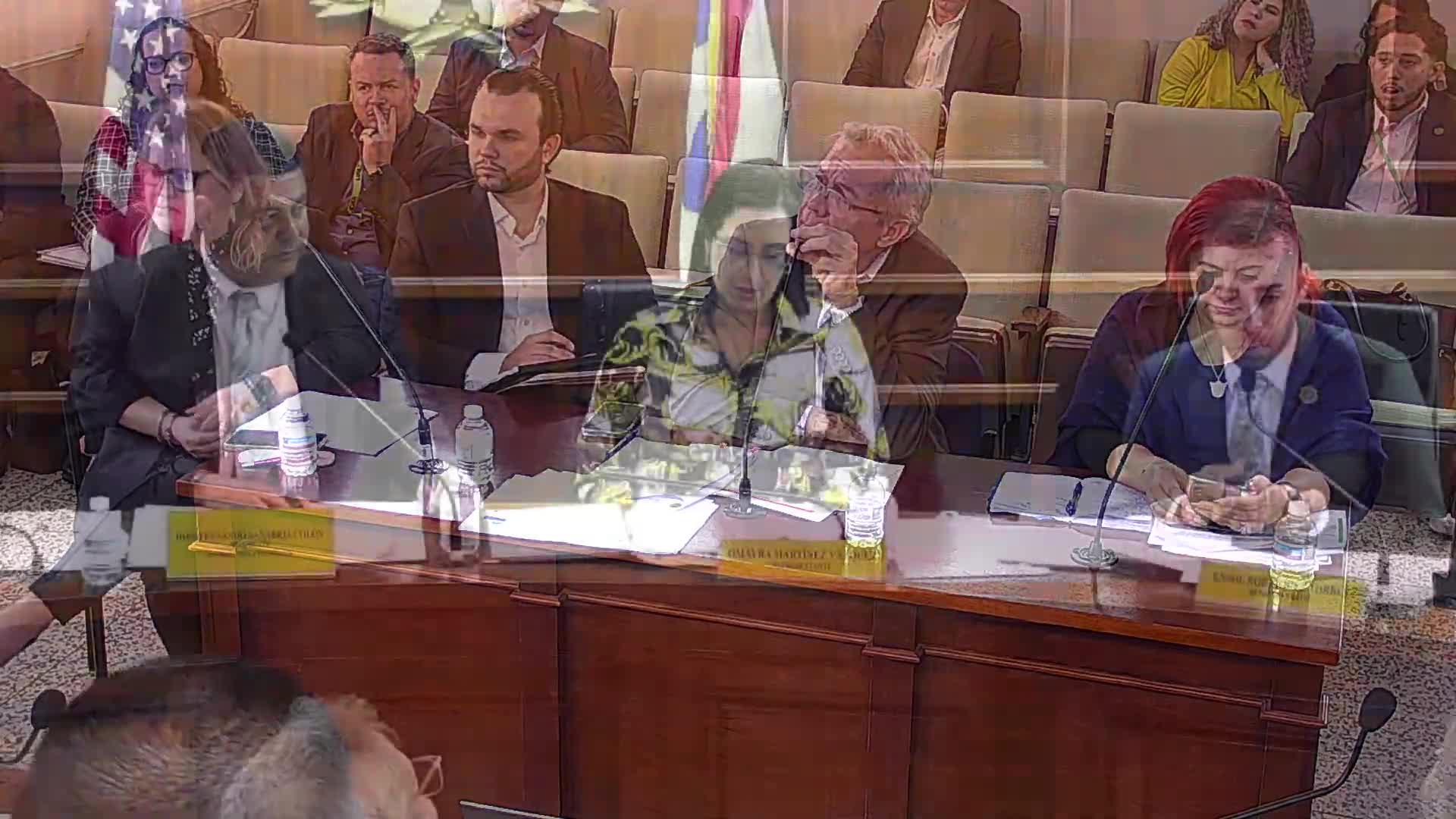Puerto Rico Officials Address Energy Cost and Voltage Fluctuation Issues in Municipalities
September 25, 2025 | House of Representatives, House, Committees, Legislative, Puerto Rico
This article was created by AI summarizing key points discussed. AI makes mistakes, so for full details and context, please refer to the video of the full meeting. Please report any errors so we can fix them. Report an error »

In a recent session of the Cámara de Representantes in Puerto Rico, representatives gathered to address pressing concerns regarding the rising costs and poor quality of electrical services affecting municipalities such as Ponce, Guayanilla, Peñuelas, Yauco, and Adjuntas. The meeting highlighted the struggles faced by residents, particularly the elderly, who often lack the technical skills to navigate the complexities of filing complaints about their electrical service.
One representative passionately questioned the accessibility of services, emphasizing that many consumers, especially seniors, find it challenging to communicate their issues effectively. The representative pointed out that while the agency offers assistance, including sending forms by mail and providing legal representation for complaints, the system still falls short in reaching those who need help the most.
The discussion turned to the technical issues plaguing the electrical grid, particularly voltage fluctuations that have been damaging household appliances and affecting schools. A representative from Luma Energy explained that these fluctuations are often caused by an influx of distributed energy generators, which the current system is not equipped to handle efficiently. They acknowledged the need for improved standards for home inverters and mentioned ongoing efforts to regulate net metering equipment to minimize these issues.
Moreover, it was noted that not all problems stem from Luma; some issues arise from improper electrical work done by unqualified individuals. This revelation underscored the complexity of the situation, where both the utility provider and consumers share responsibility for the challenges faced.
As the meeting progressed, the representatives expressed a commitment to addressing these concerns, with plans to enhance communication and support for consumers. The session concluded with a sense of urgency to implement solutions that would not only stabilize the electrical system but also ensure that all residents, especially the most vulnerable, have access to reliable energy services. The discussions reflect a broader concern for the community's well-being and the need for systemic improvements in Puerto Rico's energy infrastructure.
One representative passionately questioned the accessibility of services, emphasizing that many consumers, especially seniors, find it challenging to communicate their issues effectively. The representative pointed out that while the agency offers assistance, including sending forms by mail and providing legal representation for complaints, the system still falls short in reaching those who need help the most.
The discussion turned to the technical issues plaguing the electrical grid, particularly voltage fluctuations that have been damaging household appliances and affecting schools. A representative from Luma Energy explained that these fluctuations are often caused by an influx of distributed energy generators, which the current system is not equipped to handle efficiently. They acknowledged the need for improved standards for home inverters and mentioned ongoing efforts to regulate net metering equipment to minimize these issues.
Moreover, it was noted that not all problems stem from Luma; some issues arise from improper electrical work done by unqualified individuals. This revelation underscored the complexity of the situation, where both the utility provider and consumers share responsibility for the challenges faced.
As the meeting progressed, the representatives expressed a commitment to addressing these concerns, with plans to enhance communication and support for consumers. The session concluded with a sense of urgency to implement solutions that would not only stabilize the electrical system but also ensure that all residents, especially the most vulnerable, have access to reliable energy services. The discussions reflect a broader concern for the community's well-being and the need for systemic improvements in Puerto Rico's energy infrastructure.
View full meeting
This article is based on a recent meeting—watch the full video and explore the complete transcript for deeper insights into the discussion.
View full meeting